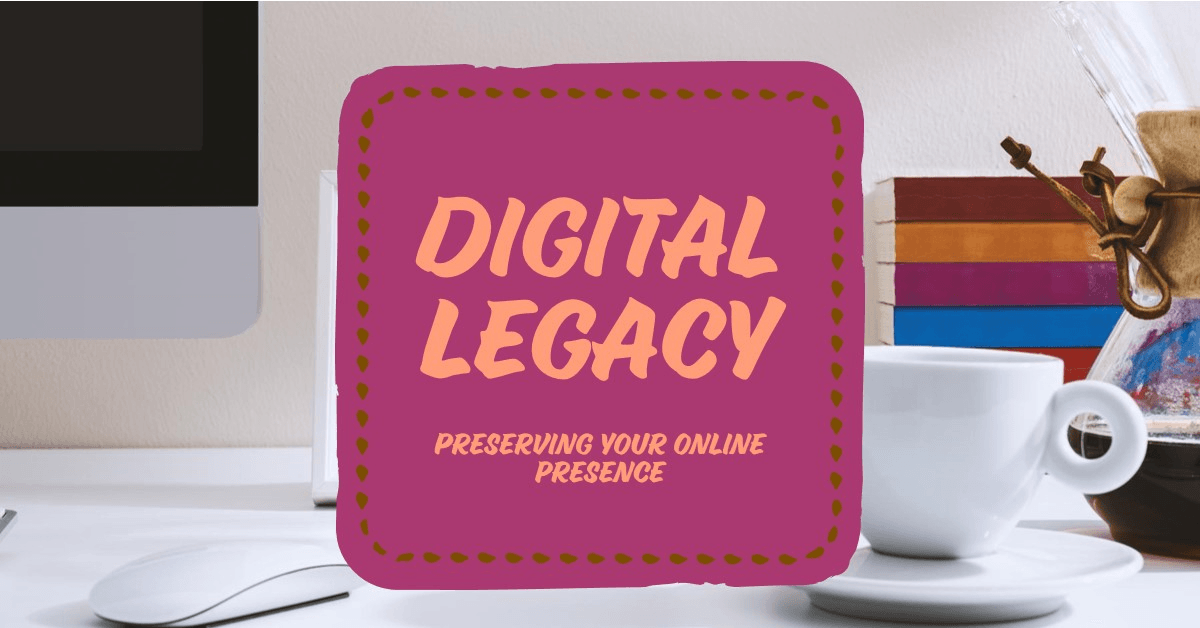In today’s digital age, our lives are increasingly intertwined with technology. From social media profiles and email accounts to digital photos and financial records, our personal data is spread across various online platforms. As we go through our lives, we often overlook one crucial question: What happens to our digital data after we die? This article delves into the growing concerns and emerging services surrounding digital burial, exploring how companies and legal frameworks are evolving to manage our online data posthumously.
Understanding Digital Legacies
A digital legacy refers to the collection of online data and accounts that a person leaves behind after their death. This can include:
- Social Media Accounts: Profiles on platforms like Facebook, Twitter, and Instagram.
- Email Accounts: Personal and work-related emails stored in various accounts.
- Financial Data: Online banking, investment accounts, and cryptocurrency holdings.
- Digital Assets: Photos, videos, documents, and digital subscriptions.
As our dependence on digital technology grows, the importance of managing these digital legacies becomes more apparent. Handling these assets properly ensures that your wishes are respected and your loved ones are not burdened with the complexities of managing your online presence.
The Growing Concern: Managing Digital Data After Death
1. Challenges in Digital Estate Management
Managing digital assets after death presents several challenges:
- Access and Security: Gaining access to online accounts requires passwords and authentication, which can be difficult to manage without proper planning.
- Legal Ambiguities: Digital assets are not always covered by traditional estate laws, leading to legal complexities.
- Privacy and Consent: Ensuring that digital data is handled according to the deceased’s wishes while respecting privacy laws is crucial.
2. Emerging Services for Digital Burial
As awareness of digital legacies grows, various companies and services have emerged to address these concerns:
Digital Estate Planning Services
Digital estate planning involves organizing and managing your digital assets as part of your overall estate plan. Several companies offer specialized services, including:
- Password Managers: Tools like LastPass and 1Password allow you to store and share passwords securely. Some services offer features to designate trusted contacts who can access your passwords after your death.
- Digital Will Services: Platforms such as SafeBeyond and FutureVault enable you to create digital wills and plan for the management of your digital assets.
Social Media Management
Many social media platforms have policies for handling accounts after death:
- Facebook: Allows you to designate a legacy contact who can manage your account or request memorialization of the account.
- Instagram: Provides options to request account memorialization or deletion upon verification of the account holder’s death.
Internal Link: For more on managing your social media presence, check out our guide on Digital Estate Planning Essentials.
External Link: Learn about Facebook’s legacy contact feature on Facebook Help Center.
3. Legal Frameworks and Digital Data
The legal landscape surrounding digital assets is evolving to address the complexities of digital legacies:
Legal Developments
- Digital Estate Laws: Some jurisdictions are enacting laws to address digital assets in estate planning. For example, the Revised Uniform Fiduciary Access to Digital Assets Act (RUFADAA) in the U.S. provides guidelines for accessing and managing digital assets.
- Data Protection Regulations: Regulations like the General Data Protection Regulation (GDPR) in Europe and similar laws in other regions provide frameworks for handling personal data, including posthumous data management.
Internal Link: Explore our detailed article on Digital Privacy Laws and Their Impact for more insights.
External Link: Read about RUFADAA and its implications on Uniform Law Commission.
4. Ethical Considerations in Digital Burial
The management of digital data after death raises several ethical questions:
- Consent and Autonomy: Ensuring that your digital assets are managed according to your wishes and respecting your autonomy.
- Privacy Concerns: Balancing the need to access and manage digital assets with respecting the privacy of the deceased.
- Family Dynamics: Navigating family dynamics and ensuring that digital assets are handled in a way that minimizes conflict.
5. Planning for Your Digital Legacy
Proper planning is essential to ensure that your digital legacy is handled according to your wishes:
- Create a Digital Will: Specify how you want your digital assets to be managed and designate trusted individuals to handle them.
- Use Password Managers: Store and share access credentials securely, and designate a trusted contact for your accounts.
- Update Your Estate Plan: Include digital assets in your overall estate plan and consult with a legal professional to address any legal considerations.
Internal Link: For practical tips on creating a digital will, see our article on How to Draft a Digital Will.
External Link: Learn more about digital estate planning on Nolo.
Conclusion: The Future of Digital Burial
As our lives become more digital, managing our online presence after death is becoming increasingly important. The rise of digital estate planning services, evolving legal frameworks, and ethical considerations highlight the need for careful planning to handle digital legacies. By proactively addressing these issues, you can ensure that your digital assets are managed according to your wishes, providing peace of mind for yourself and your loved ones.
For further reading on digital legacies and estate planning, check out our related articles on Managing Digital Assets and Legal Issues in Digital Estate Planning.
External Links:
- SafeBeyond: Digital Legacy Solutions: Explore digital will and legacy planning services.
- FutureVault: Digital Estate Management: Learn about managing digital assets and creating digital wills.
The concept of digital burial is reshaping how we think about estate planning and data management. As technology continues to advance, it is essential to stay informed and prepared to address the complexities of our digital legacies.










